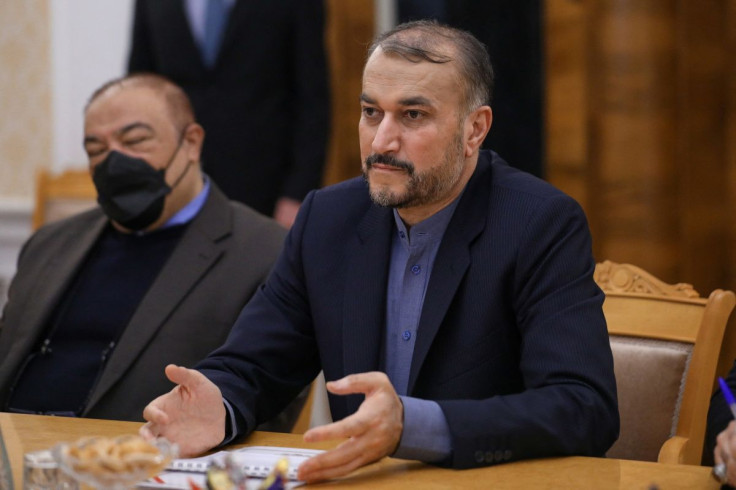Iran Top Diplomat Says U.S. Must Show Goodwill Gesture For Direct Talks

Iran is ready to swap prisoners with the United States, Iran's foreign minister said on Saturday, adding that talks to revive a 2015 nuclear deal could succeed "at the earliest possible time" if the United States makes the necessary political decisions.
Reuters reported on Thursday that a U.S.-Iranian deal is taking shape in Vienna after months of indirect talks to revive the nuclear pact. The draft text of the agreement alluded to other measures, including unfreezing billions of Iranian funds in South Korean banks and the release of Western prisoners held in Iran, Reuters reported.
"We believe prisoner swap is a humanitarian issue ... unrelated to the nuclear accord ... We can do it immediately," Hossein Amirabdollahian told a panel at the Munich Security Conference.
Robert Malley, who leads the indirect U.S. talks with Iran in Vienna, has suggested that securing the nuclear pact is unlikely unless Tehran releases four U.S. citizens Washington says it is holding hostage.
In recent years, Iran's elite Revolutionary Guards have arrested dozens of dual nationals and foreigners, mostly on espionage and security-related charges. Tehran denies taking prisoners to gain diplomatic leverage, as claimed by rights activists.
In the past, Iran has called for the release of over a dozen Iranians in the United States, including seven Iranian-American dual nationals, two Iranians with permanent U.S. residency and four Iranian citizens with no legal status in the United States.
Most of them have been jailed for violating U.S. sanctions against Iran.
When asked whether Tehran was ready to hold direct talks with Washington, Amirabdollahian did not rule this out.
"They have asked for direct meetings ... If Washington's intentions are genuine, they should take some tangible steps of goodwill on the ground such as freeing Iran's frozen assets abroad," he said.
The 2015 deal between Iran and major powers limited Iran's enrichment of uranium to make it harder for Tehran to develop material for nuclear weapons, in return for a lifting of international sanctions against Tehran.
But it has eroded since 2018 when then-President Donald Trump withdrew the United States and reimposed far-reaching sanctions on Iran.
Tehran has since breached the deal's limits and gone well beyond, rebuilding stockpiles of enriched uranium, refining it to higher fissile purity and installing advanced centrifuges to speed up output.
Both Tehran and Washington have described the nuclear talks as constructive since last week, when the negotiations resumed after a 10-day pause. However, they have also said that tough political decisions needed to be taken to overcome the remaining differences.
"I would like to emphasize here that we are ready to achieve a good deal, at the earliest possible time, if the other side makes the needed political decision," Amirabdollahian said.
"If the talks fail in Vienna, Western powers will be responsible for the failure because we want a good deal."
After 10 months of talks, one of the remaining differences is Iran's demand for a U.S. guarantee of no more sanctions or other punitive steps in future, and also how and when to restore verifiable restrictions on Iran's nuclear activity.
A senior Iranian official told Reuters that Iran has shown flexibility by agreeing to "inherent guarantees" as Washington says it is impossible for President Joe Biden to provide the legal assurances Iran has demanded.
Amirabdollahian said a joint statement by the heads of the U.S. Senate and House of Representatives to back the nuclear deal would suffice as a "political guarantee".
(Writing by Parisa Hafezi in ViennaEditing by Mark Potter and Frances Kerry)
© Copyright Thomson Reuters 2024. All rights reserved.





















